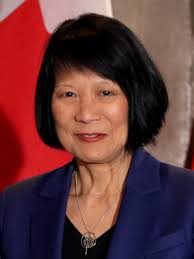
Introduction
Olivia Chow’s recent election as Toronto’s mayor marks a significant moment in the city’s political landscape. As the first Asian woman to hold this position, her victory is not just a personal achievement but a reflection of Toronto’s diverse demographic and aspirations. In the wake of pressing issues like housing affordability, public transit deficiencies, and climate change, her leadership is anticipated to steer the city towards solutions that resonate with a broad spectrum of residents.
Election Highlights
Chow’s campaign was characterized by her commitment to addressing core urban issues, emphasizing inclusivity and community engagement. With a background as an educator and activist, she outlined a vision that focused on affordable housing initiatives, improved public transportation systems, and climate action. Her platform also highlighted the importance of mental health services and economic recovery following the impacts of the COVID-19 pandemic.
During the election, Chow garnered support from many local organizations and demographics, particularly younger voters seeking a transformative agenda. Her passionate speeches and approachable demeanor resonated widely, ultimately leading to her victory in a tight race, further demonstrating the shifting political interests of Toronto’s electorate.
Challenges Ahead
Now that she has taken office, Chow faces multiple challenges, including budget constraints and managing expectations among various stakeholder groups. Housing remains a critical issue, as prices continue to skyrocket in Toronto. Chow has vowed to work alongside developers and community organizations to create affordable housing options without compromising the city’s integrity.
Moreover, the ongoing issues with public transit have left many residents frustrated. Chow’s administration plans to prioritize investments in transit infrastructure that would alleviate congestion and provide more efficient travel options throughout the city.
Conclusion
Olivia Chow’s election signifies a new chapter for the city of Toronto, one that embraces diversity and aims for progressive change. Her leadership style, which prioritizes transparency and collaboration, is expected to foster a more inclusive governance model. As she navigates the complexities of urban leadership, her policies will likely impact Torontonians significantly in various facets of their daily lives. Moving forward, residents and stakeholders alike will be closely watching Olivia Chow’s term, heralding a hopeful future shaped by her vision and the community’s needs.



